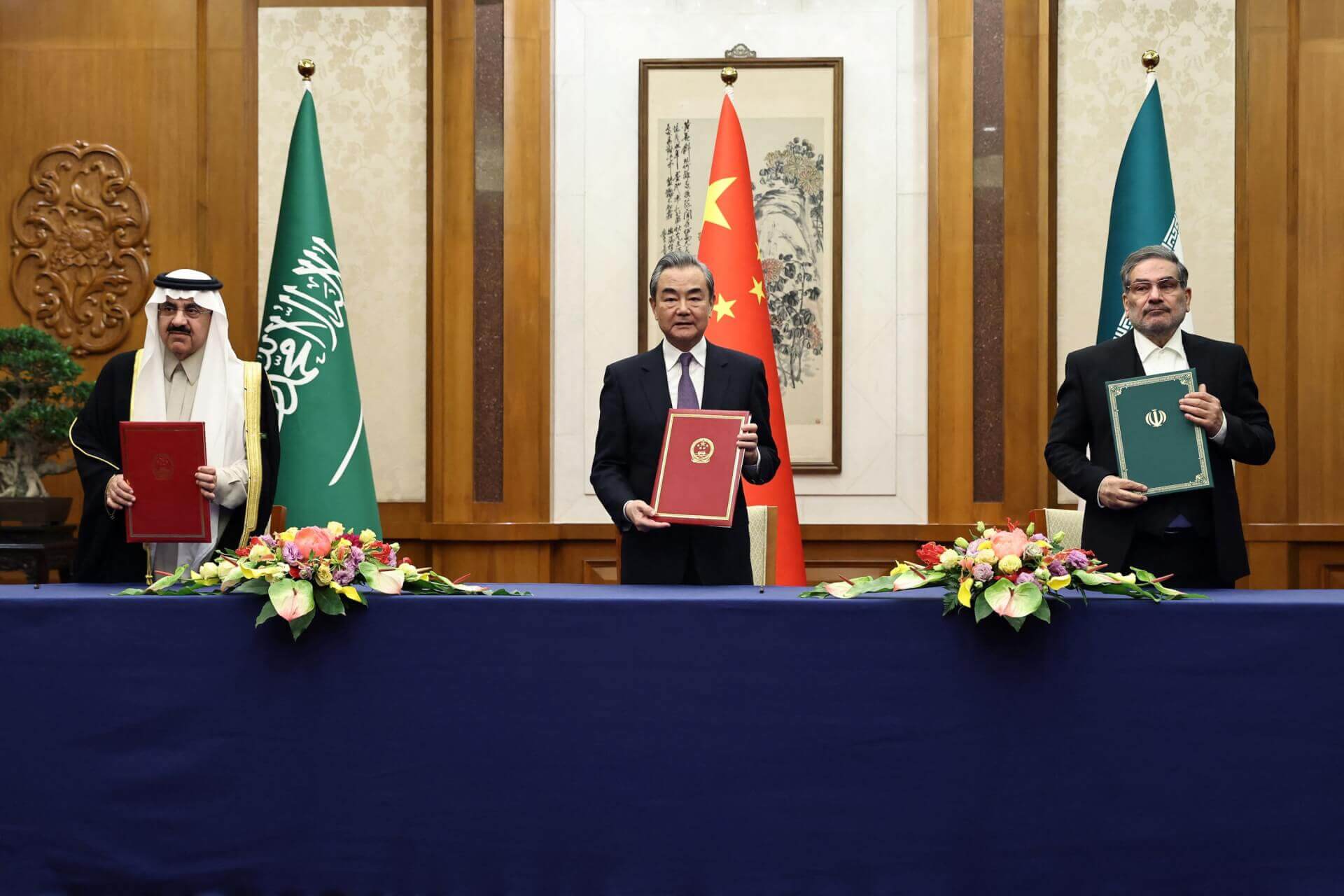After facilitating talks between Saudi Arabia and Iran in Beijing, which led to the resumption of diplomatic ties between the two countries, China said on Saturday that it did not do so to fill any kind of power vacuum in the region.
“No Selfish Interest”
An unidentified spokesperson of the Chinese Ministry of Foreign Affairs said in a statement that China harbours “no selfish interest whatsoever in the Middle East.”
“We respect the stature of Middle East countries as the masters of this region and oppose geopolitical competition in the Middle East. China has no intention to and will not seek to fill so-called vacuum or put up exclusive blocs.”
China will continue to play a constructive role in promoting peaceful dispute resolution and the solidarity and cooperation among developing countries.
— Hua Chunying 华春莹 (@SpokespersonCHN) March 12, 2023
The spokesperson added that China believes “the future of the Middle East should always be in the hands of the countries in the region” and “always supports the people… in independently exploring their development paths.”
Outcome
China, Saudi Arabia, and Iran agreed to adhere to the “principles of the UN Charter, resolve the disagreements between them through dialogue and diplomacy, respect the sovereignty of states, and not interfere in internal affairs of states.”
They also expressed a “keenness to exert all efforts towards enhancing regional and international peace and security.”
Joint Trilateral Statement by the Kingdom of #Saudi Arabia, the Islamic Republic of #Iran, and the People’s Republic of #China. pic.twitter.com/MyMkcGK2s0
— Foreign Ministry 🇸🇦 (@KSAmofaEN) March 10, 2023
Iran and Saudi Arabia also agreed to reopen embassies in their respective countries after a gap of seven years, a move that is being seen as a major diplomatic victory for China.
China’s Growing Influence
In December 2021, American intelligence agencies reported that Saudi Arabia has been manufacturing its own ballistic missiles with China’s help. According to officials, Riyadh had sought help from the Chinese military’s missile force, the People’s Liberation Army Rocket Force.
A month earlier, the US pointed out that China was secretly constructing a military base in a port in the UAE.
Today’s news that China has brokered a peace deal between Iran and Saudi Arabia cuts both ways. On the one hand, peace deals are good for everyone, including US. On the other, China spearheading such diplomatic initiatives is further proof US influence globally is in decline.
— Derek J. Grossman (@DerekJGrossman) March 10, 2023
Declining US Influence
Cracks started to emerge in the US-Saudi alliance after the Biden administration blamed Crown Prince Mohammad Bin Salman for the cold-blooded murder of Washington Post journalist Jamal Khashoggi, imposed sanctions on Saudi officials for Khashoggi’s death, and halted military aid to the Kingdom over rights violations in Yemen.
In fact, the US removed its Patriot anti-missile battery systems stationed in the Gulf country. Following the move, Yemen’s Houthi militia increased missile attacks against Saudi Arabia, prompting concerns from Riyadh about Washington’s commitment to their historic, time-tested relations.
The Saudi leadership was also upset with the US’ hasty withdrawal from Afghanistan, its insistence on reviving the Iran nuclear deal, potentially relaxing sanctions on Tehran, and removing the Islamic Revolutionary Guard Corps (IRGC) from the list of terrorist organisations.

